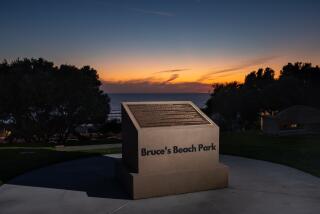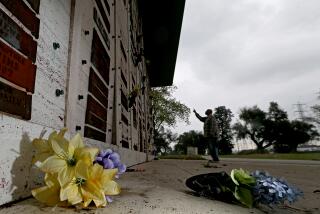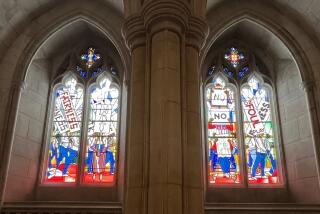They went to prison for burning draft records. Fifty years later, a memorial marker celebrates the Catonsville Nine
Police once arrested Margarita Melville on Frederick Road in Catonsville, Md. They drove her to jail and handcuffed her, and FBI agents knocked on her parents’ door.
But times change. Fifty years after authorities arrested Melville, her husband and seven friends for stealing and burning draft records, the state of Maryland recognized the Catonsville Nine on Saturday with a memorial sign on the grounds of the Catonsville Public Library.
Melville, now 88, returned to the scene of the crime, where she and her fellow pacifists seized and burned 378 draft records in protest of the Vietnam War.
They would be convicted of destruction of U.S. property, destruction of Selective Service files and interfering with the Selective Service Act of 1967, and sentenced to prison. But their protest drew international attention, and inspired dozens more across the country.
More than 100 people gathered on the library lawn to see the sign unveiled.
“Don’t cause too much trouble,” someone called out. Melville grinned.
The small ceremony marked the 50th anniversary of the protest led by brothers Philip and Daniel Berrigan, both Catholic priests, in May 1968. Melville, one of two surviving members of the nine, was the only one to attend.
1968: A timeline of anger, grief and change »
“We were burning draft cards in Catonsville to protest the government’s burning of children in Vietnam,” Melville said, quoting Daniel Berrigan’s famous line.
The memorial marker was installed outside the library — not outside the Knights of Columbus banquet hall across the street, where they burned the records.
Organizers said the Knights of Columbus declined to let them place the sign on their grounds. During the 1960s, the Catholic-based fraternal organization allowed the draft board to use an office in the hall.
Activist Brendan Walsh was a student of Daniel Berrigan.
“Rather than say we cannot put the marker where it belongs,” he said, “they should say we repent and ask for forgiveness.”
Two women who answered the door at the hall Saturday declined to comment.
The Catonsville Nine inspired similar protests around the country. Under increasing pressure, Congress ended the draft in 1973.
The nine spent weeks planning their raid on the Catonsville draft board. On May 17, 1968, they entered and began ransacking cabinets and throwing Selective Service System files into wire trash baskets.
In the parking lot, they doused the records with a homemade napalm of Ivory soap flakes and gasoline — a recipe from a U.S. military handbook, Melville said.
“I personally put a match on them,” she recalled. They all shared the culpability.
Melville served nine months in a federal prison in West Virginia. She lives in Mexico now.
After the ceremony, she walked to the Knights of Columbus parking lot and stood on the very grounds where she burned the records. When she continued down Frederick Road, people stopped and thanked her.
Once she went down this road in a police van. Saturday she traveled it again, hurrying to a panel discussion at which she was a guest of honor.
More to Read
Start your day right
Sign up for Essential California for news, features and recommendations from the L.A. Times and beyond in your inbox six days a week.
You may occasionally receive promotional content from the Los Angeles Times.






